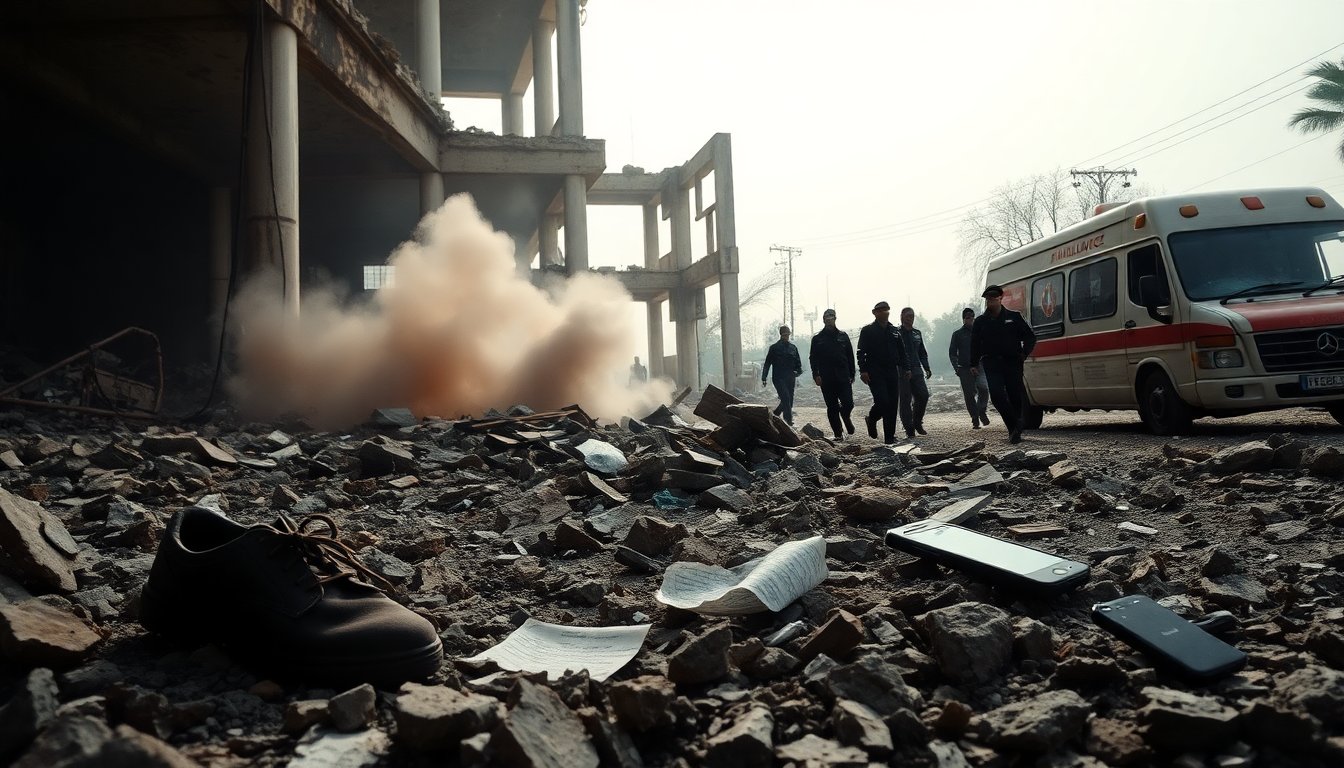Table of Contents
On a fateful Tuesday afternoon in Islamabad, chaos erupted that would resonate throughout South Asia. Around 12:30 PM local time, an explosion shook the District Judicial Complex, leading to tragic loss of life and numerous injuries. Among those impacted was Khalid Khan, a young lawyer who was waiting for lunch with a colleague when disaster struck.
As the dust settled, the alarming statistics emerged: at least 12 individuals were killed, and over 30 others sustained serious injuries. This incident raised urgent questions about security measures and regional tensions, particularly as Pakistan’s leadership accused neighboring Afghanistan and India of supporting the attackers.
The immediate aftermath of the blast
The explosion, attributed to a suicide bomber, occurred at the court’s entrance, a location bustling with legal professionals, litigants, and security personnel. In the wake of the blast, the area descended into chaos.
Eyewitness accounts described a moment so intense it shattered windows in nearby courtrooms. Body parts were reportedly scattered, including that of the bomber, underlining the ferocity of the attack.
Witnesses recounted the scene with disbelief and horror. Muhammad Shehzad Butt, a lawyer near the cafeteria when the explosion occurred, described the ensuing chaos.
“It was complete pandemonium,” he recalled. “People rushed toward the exits, creating havoc at the gates, while others desperately sought safety inside the building.”
Security measures and their implications
As the incident unfolded, scrutiny on security protocols intensified. Butt noted that earlier that day, the security checks at the court complex seemed routine yet thorough.
However, as the day progressed, it became clear that additional screening had been implemented, possibly in response to a high-profile visit. Such measures, while intended to enhance safety, were insufficient to prevent the tragedy.
Later, Pakistani Prime Minister Shehbaz Sharif accused “India-backed proxies” operating from Afghanistan of orchestrating the bombing.
This claim was swiftly rebutted by Indian officials, who dismissed it as “baseless,” arguing it reflected a Pakistani government attempt to divert attention from its internal challenges, including a contentious constitutional amendment debate.
Repercussions and political tensions
The bombing’s ramifications extended beyond the immediate loss of life. The incident ignited significant political tension between Pakistan and India, with both nations trading accusations in its wake. India’s Ministry of External Affairs spokesperson, Randhir Jaiswal, emphasized that such allegations from Pakistan were attempts to distract from political instability within the country.
As the international community observed escalating tensions, the implications of the court bombing raised serious concerns about stability in the region. Activists and opposition figures in Pakistan criticized the government for its handling of security issues, arguing that the focus on blaming external actors detracted from necessary reforms in domestic safety.
Returning to normalcy
Despite the chaos and loss, some expressed a resolve to continue their daily lives. Khalid Khan, who survived the ordeal, stated, “We have been through enough violence; this doesn’t scare us.” His sentiment reflected the resilience found among those who have faced repeated tragedies. Alongside his friend Fawad Khan, he planned to return to work the following day, determined not to let fear dictate their actions.
As authorities cordoned off the area after the attack, journalists and media personnel gathered outside the complex, eager to report on the unfolding story. However, access to the site was restricted, raising questions about transparency and the dissemination of information in such critical moments.
As the dust settled, the alarming statistics emerged: at least 12 individuals were killed, and over 30 others sustained serious injuries. This incident raised urgent questions about security measures and regional tensions, particularly as Pakistan’s leadership accused neighboring Afghanistan and India of supporting the attackers.0





